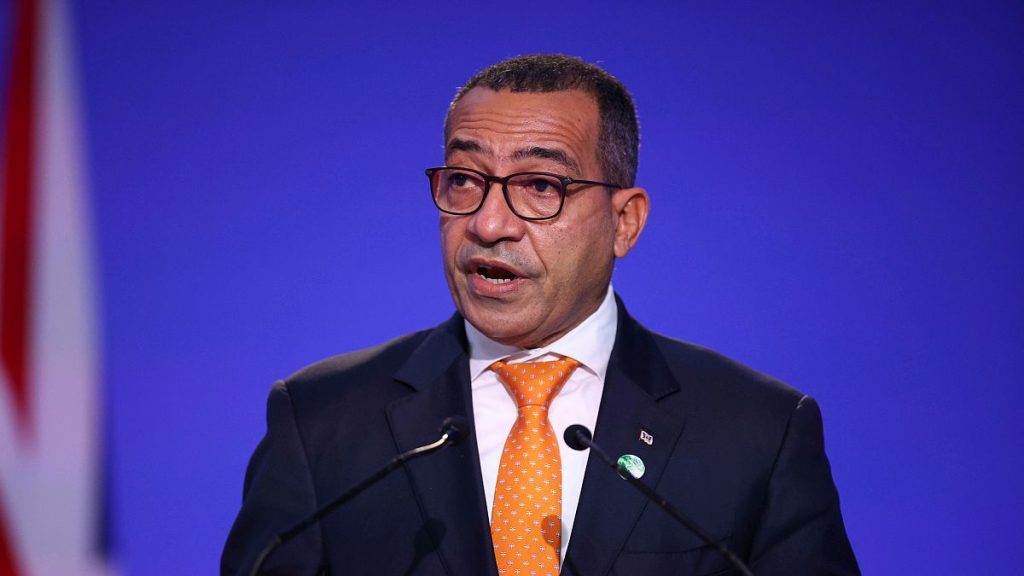São Tomé and Príncipe, a small island nation off the coast of West Africa, has found itself at a political crossroads following President Carlos Vila Nova’s dismissal of Prime Minister Patrice Emery Trovoada’s government. The president cited “prolonged absences” and the government’s perceived inability to address critical economic and financial challenges as the primary reasons for his decision. This unexpected move has introduced an element of uncertainty into the country’s political landscape, raising questions about the future direction of governance and the stability of the nation. While the specific trigger for the dismissal remains unclear, the president’s action underscores deeper concerns about the effectiveness of the government in tackling pressing socio-economic issues and potentially underlying tensions within the ruling party itself.
The dismissal of the government comes at a sensitive time for São Tomé and Príncipe. The nation, generally considered a beacon of democratic stability in a region often marred by political turmoil, faced a foiled coup attempt in November 2022. This incident, involving an assault on a military barracks with “weapons of war,” highlighted underlying vulnerabilities and raised concerns about the potential for further instability. The aftermath of the coup attempt saw the arrest of several individuals, including a former presidential candidate alleging election rigging, further complicating the political climate. The president’s decision to dismiss the government now, in the wake of this attempted coup and amidst ongoing accusations of political favoritism and human rights abuses, adds another layer of complexity to the nation’s political situation.
President Vila Nova’s move to dismiss the Trovoada government underscores a growing discontent with the administration’s performance. While São Tomé and Príncipe has been lauded for its relatively strong democratic institutions, concerns have been raised regarding governance issues, particularly relating to corruption, the management of public services, and the utilization of foreign aid and investment. These concerns have fueled public dissatisfaction and protests, indicating a growing divide between the government and the citizenry. The president’s action could be interpreted as a response to this growing public pressure, a move to address the perceived shortcomings of the Trovoada administration and to restore public confidence in the government’s ability to effectively manage the nation’s affairs.
The president’s decision to grant his party, to which the dismissed Prime Minister Trovoada also belongs, a 72-hour deadline to form a new government presents both challenges and opportunities. On one hand, it highlights the potential for a smooth transition of power within the existing political framework, minimizing the risk of further destabilization. The relatively short timeframe suggests a desire for swift action to address the perceived governance vacuum and to reassure both the populace and international partners of the country’s commitment to stability. On the other hand, the limited time frame may also pose a challenge in forming a cohesive and effective government, potentially leading to rushed decisions and the appointment of individuals based on political expediency rather than merit.
The formation of a new government presents a crucial opportunity for São Tomé and Príncipe to address the underlying issues that have contributed to the current political situation. The new administration will need to prioritize addressing the economic and financial challenges facing the nation, focusing on sustainable development and improving public services. Furthermore, tackling corruption and promoting good governance will be essential to restoring public trust and ensuring accountability. Addressing the concerns raised about the handling of the aftermath of the coup attempt, including allegations of human rights abuses, will be crucial for reinforcing the rule of law and demonstrating a commitment to justice and transparency.
The future political trajectory of São Tomé and Príncipe will depend heavily on the composition and actions of the new government. The nation stands at a critical juncture, with the potential to either consolidate its democratic gains and address its pressing socio-economic challenges or to descend into further political instability. The international community will be closely watching the developments in São Tomé and Príncipe, hoping that the transition of power will be peaceful and that the new government will prioritize the needs of its citizens and work towards strengthening the nation’s democratic institutions. The success of the new administration will ultimately depend on its ability to effectively address the concerns that led to the dismissal of the previous government and to chart a course towards a more stable and prosperous future.














